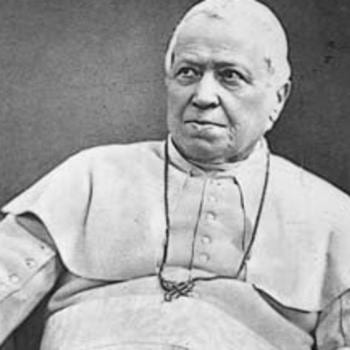
Ihave suspected for over ten years now that I have Asperger syndrome, but I have never sought a diagnosis that would tell me for sure; and this reluctance has caused a few diagnosis apologists I know to try to argue me into it. They will run down all the rational arguments and bring to the conversation the mighty weight of a whole list of benefits that come with a diagnosis.
But what said diagnosis apologists never once seem (to me) to consider is how the whole thing makes me feel. If they consider it, they don’t convey it. I thus say to myself: “They don’t care that I’m scared.” I’m scared of being defined, and limited, and stereotyped, in my very personhood, by the word “autism.”
I will tell them, and truthfully, every time, that if they would just not bring it up, eventually, I start to consider it. But then, every time, someone goes into apologetics mode again and that causes me to resist again. And once again, I have to restart the whole process. If I am just left alone about it, there will come a day when I make my peace with it. And then I’ll see a doctor.
Here’s the funny thing: When I tell them this, every time, their response has been to keep arguing, to stay in apologetics mode. It is as though they think I must be argued into it; they entirely dismiss the possibility that if they let me alone to come to my own peace with it, eventually I will seek a diagnosis anyway.
And what the whole thing tells me is: Your feelings and your fears don’t matter. What matters are my own arguments.
•••
I bring this up because of a recent post at Steel Magnificat in which Mary Pezzulo writes:
Once [Dave Armstrong] appeared on my blog’s facebook page to accuse me of “writing a hit piece on apologetics” because I had written a piece explaining that no amount of logical reasoning kept me in the Catholic Church when I had doubts; only finding someone who cared about me in the Church did that, and therefore I found the business of apologetics strange. Compassion, not squabbling or Socratic discussion, wins hearts.
Henry Karlson likewise writes:
Not only is [the apologetics focus] a simplistic solution to the crisis [in the Church], it presents a poor understanding of the faith itself. It presupposes that faith is solely about what one understands about doctrine; this suggests that those who have the most education will be those who have the most faith. If someone has a problem, the solution is to study and they will find out the problem is meaningless. If you don’t know where to turn, listen to the best apologists, to those most skilled in debates, and accept what you hear.
Naturally, Dave is up in Armstrong about all this, and is complaining on his Facebook page about the attack on apologetics and, seemingly, viewing it as an attack on himself, Dave Armstrong. For that’s an attack on his livelihood!
Now, I do Catholic apologetics myself, and I love reading Catholic apologetics, and Catholic apologetics helped to bring me into the Church. So I am not at all averse to a presentation of rational reasons for a position. When I was a kid, my mother used to defuse arguments by telling me that I should become a lawyer because I love to argue.
But argument worked with me when I was in the process of converting to Catholicism because an argument in favor of the faith was what I was looking for. I had already opened my mind, and more importantly my heart, to arguments for the faith.
To stubbornly insist on an apologetics approach when that approach is not working is not only counterproductive, but it may actually drive a person away from ever embracing the faith. So once, when a diagnosis apologist had gone on for too long, I replied (with much frustration): “I’m never going to do it! Just shoot me!”
•••
I can remember a debate about natural law arguments against homosexual acts, a few years ago. Mindy Selmys had written a blog article that some misinterpreted as a claim that natural law arguments are false. As I recall, Mindy clarified that she did not believe such arguments are false, only that they are ineffective in winning the hearts of LGBT people who reject the Church.
But some people kept insisting on using them, claiming: “They worked with me!” or “they worked with my cousin’s sister’s boyfriend’s uncle’s brother’s daughter.” Which might very well be true, but says nothing about whether they will work with someone else who’s resisting them. Why not try a different approach? Why not come up with some different reasons?
Or why not, as my friend Mary writes, simply love a person? I know an atheist on Facebook who, though still an atheist, has grown far less prejudicial about Christians simply due to the witness of Christians she met who were not hypocrites and who were kind to her. So far, love has worked far more than arguing with her.
Or why not, as my friend Henry writes, reform the Church and stop arguing about the truth of its doctrines for a moment? If someone is feeling betrayed by the Church, telling them that Purgatory is true is worse than irrelevant. They’re looking for a Church that has the integrity to reform when it fails, not for a Church that has all the right answers for why its teachings are true.
By insisting on apologetics, you are insisting on answering a problem someone may not have. In the same way that I just want assurance that my fears matter, and the space to make peace with autism (if indeed I have autism), someone else may want assurance that Christians are not hypocrites; or that they won’t be hated because they are poor, or female, or gay. Presenting a list of reasons the Church does not hate gay people is not a substitute for making a gay person feel loved and needed.
Apologetics may satisfy the mind, but never the heart and never the soul. And often it’s the heart and the soul that need convincing.
















